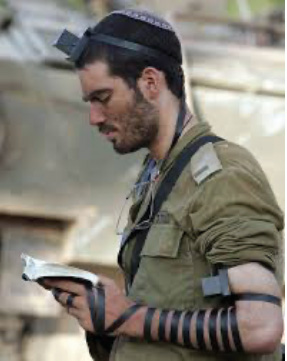

The growing interference of the Military Rabbinate in military affairs and the influx of soldiers from religious Zionism have represented a significant shift for the Israel Defense Forces (IDF), turning them into something quite different from the apolitical and areligious army dreamed of by the state’s founding fathers in 1948, writes Samy Cohen (Sciences Po – Paris Institute of Political Studies) in the Bulletin de l’Observatoire international du religieux (September). Traditionally, the Military Chief Rabbinate provided religious services, but it later became active in promoting nationalist religious political views. Cohen identifies the 1967 Six-Day War as the initial turning point, when nationalist and messianic fervor began permeating public opinion. A significant step was the appointment of a religious Zionist and West Bank settler, Brigadier General Avihai Ronski, as the Military Chief Chaplain in 2006. He believed that rabbis should position themselves close to combat units to instill courage and convince soldiers of their mission’s righteousness—serving not only Israeli security but also the Greater Israel project. The article lists several instances showing how rabbis were instrumental in spreading religious nationalist narratives among soldiers.
The massive influx of religious Zionist soldiers, fundamentally changing the character of combat units, was encouraged since the 1980s by the IDF, as it faced an exodus from combat units among kibbutz youth and upper-middle-class secular Ashkenazi Jews—previously the backbone of combat leadership—who turned toward high-tech careers. The army’s human resources branch actively recruited religious youth, considered more motivated and fervent supporters of Israeli presence in occupied territories. Various institutional arrangements were made for religious conscripts, who proved devoted, disciplined, and courageous indeed, but the process also allowed nationalist rabbis to promote their views (including hostility to the recruitment of women) and to gain influence. Religious Zionists are now overrepresented in lower and intermediate military command levels. It is estimated that 25-30 percent of combat unit recruits adhere to religious Zionism (though they represent a smaller percentage of the general population). Religious officer candidates in infantry units rose from 2.5 percent (1990) to 31 percent (late 2000s) to 35 percent currently. Religious symbols have now become prominently present in military spaces, and religious regulations are increasingly being felt. Once a marginal group in Israel’s early decades, nationalist rabbis have successfully politicized and religionized the army, with manifest influence over combat units.
(Bulletin de l’Observatoire international du religieux, https://obsreligion.cnrs.fr/bulletin/limpregnation-religieuse-de-tsahal/)